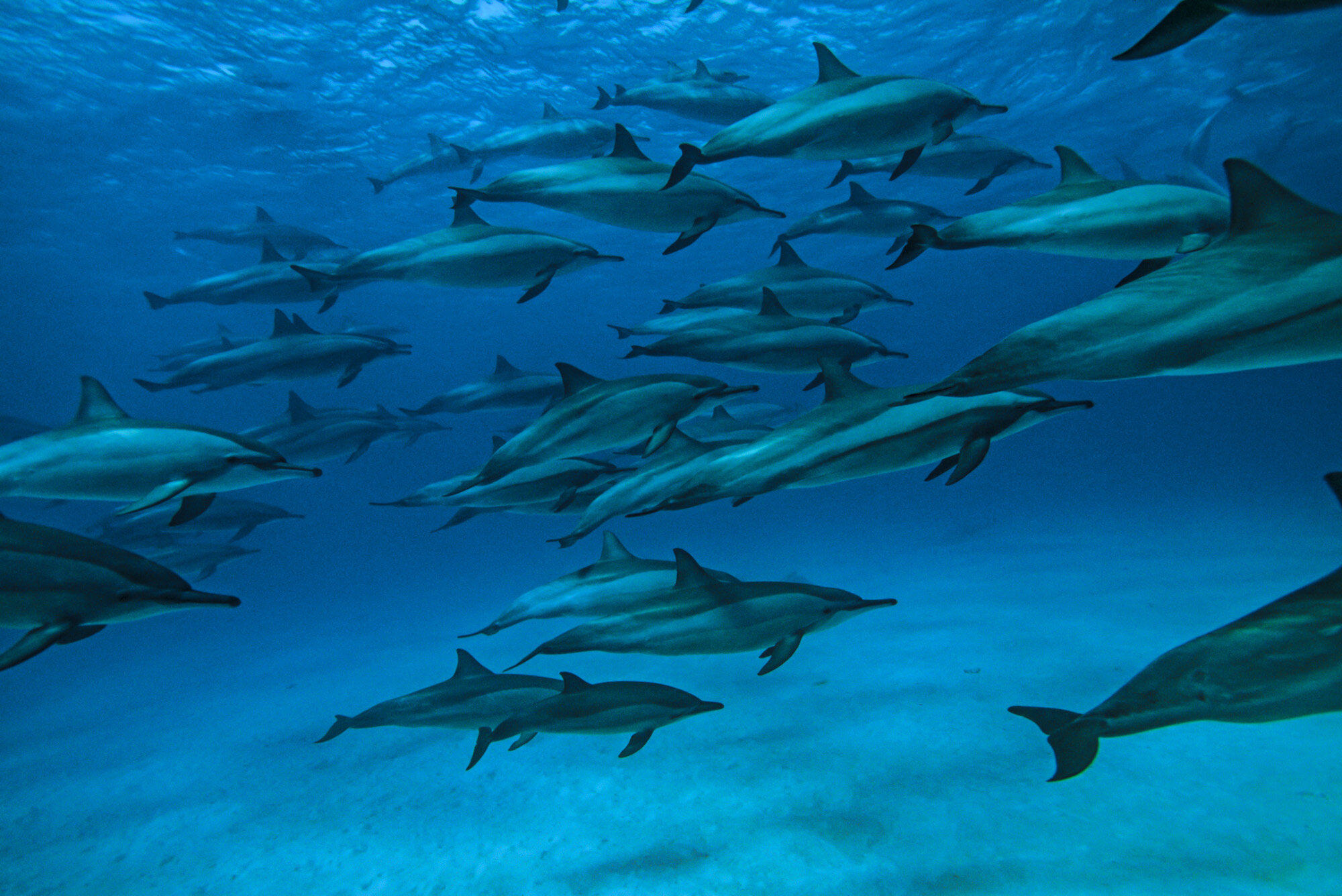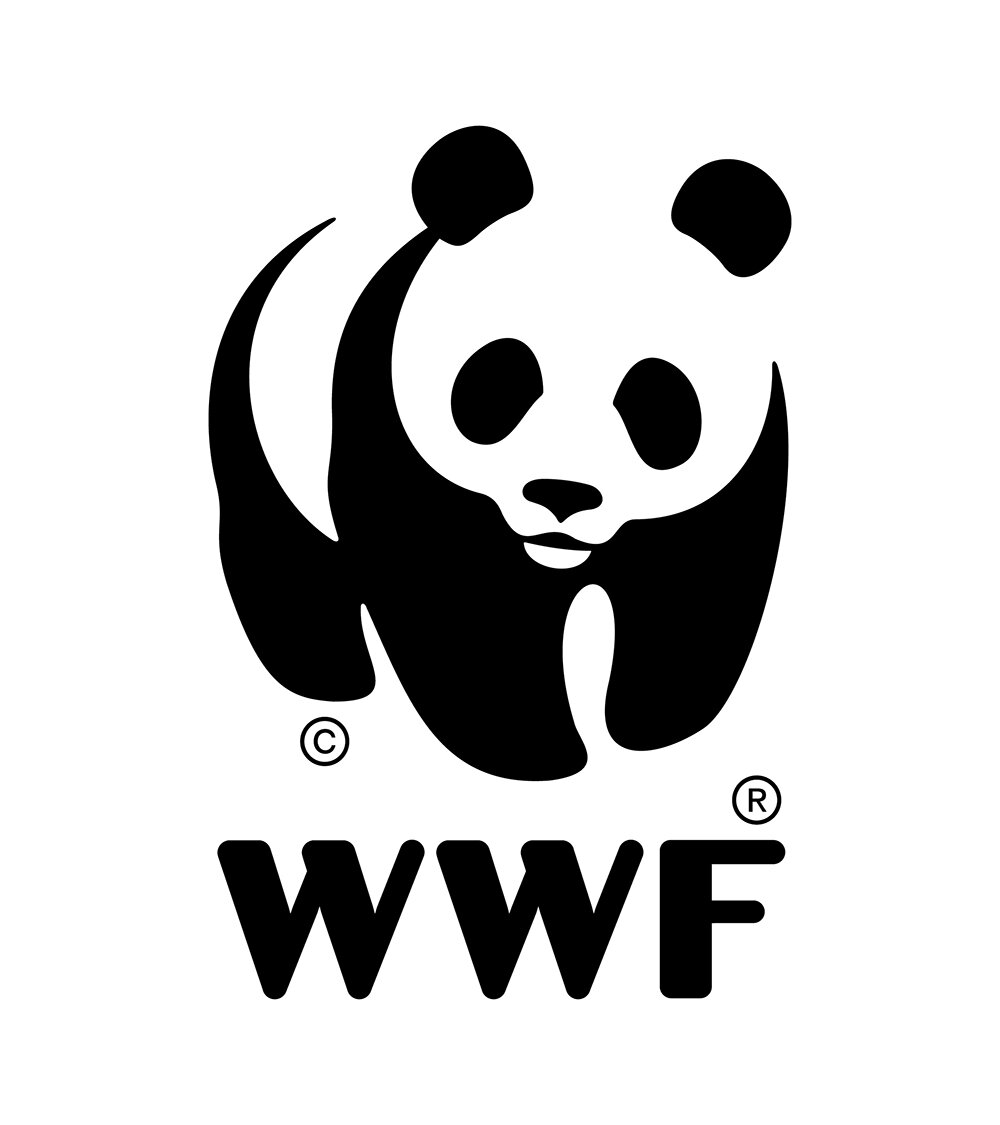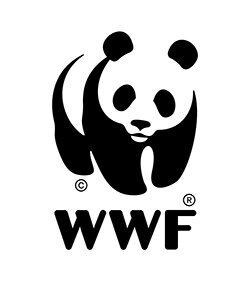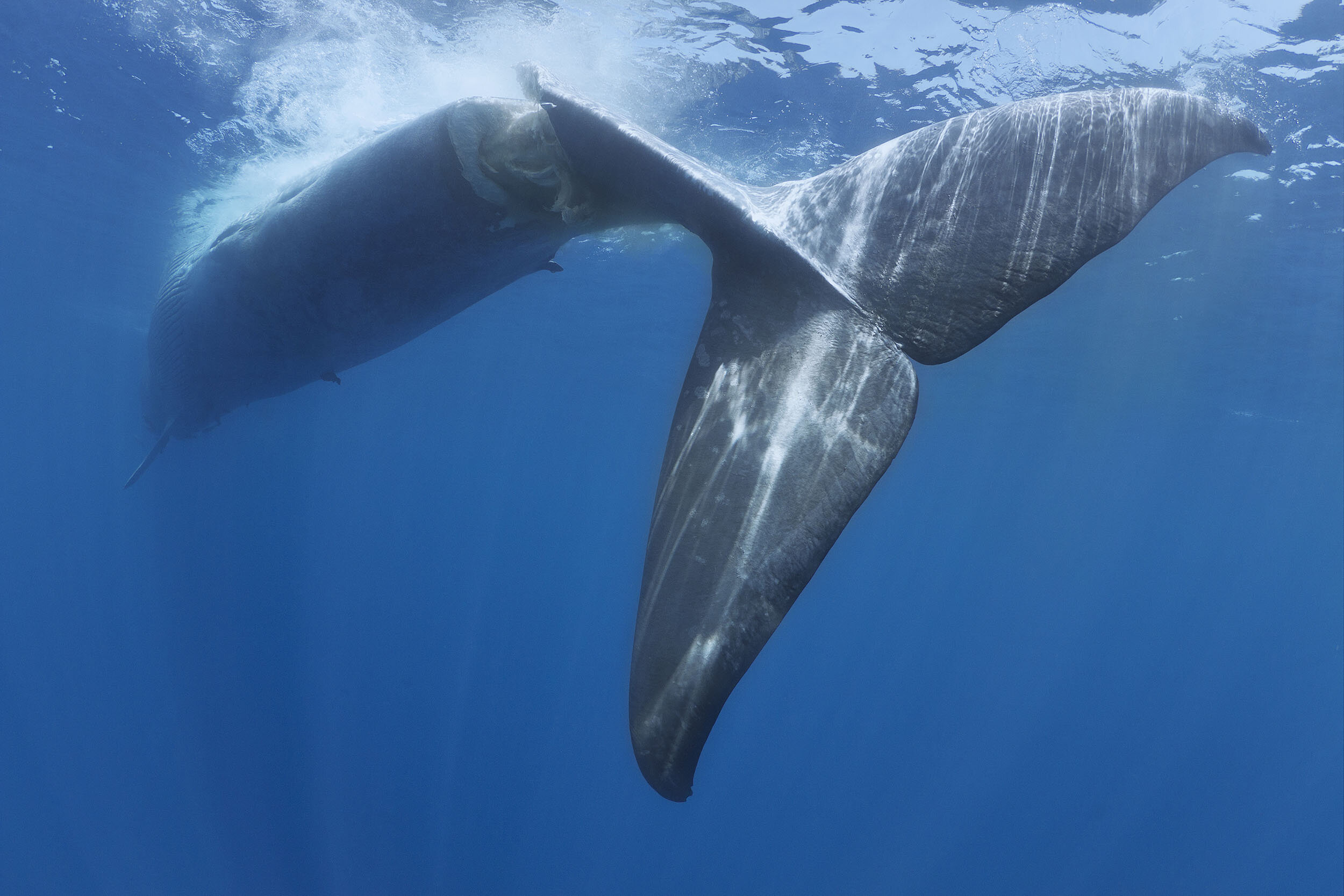
Latest news and stories about whale and dolphin conservation
Why we must protect North Atlantic right whales’ ‘migration superhighways’
If their population continues to decline, North Atlantic right whales may go extinct in less than 30 years. While the task is daunting, protecting their blue corridor from these major threats — including dynamic and mandatory vessel slowdowns and reduction of vertical fishing lines — is possible, and critical, to ensuring the survival of this species.
Whales on the move - mapping threats and solutions for our ocean giants
The growing dangers whales face worldwide along these epic journeys are signs of an unhealthy ocean, and reveal how the ocean connects us all.
World-First Map Exposes Growing Dangers Along Whale Superhighways
World-First Map Exposes Growing Dangers Along Whale Superhighways. A new global report by WWF and the marine mammal science community calls for urgent action to safeguard whales amid mounting threats along their migratory routes.
Making Noise for Quieter Ships: Why We Need to Reduce Underwater Noise Pollution
The IMO needs to develop mandatory measures to truly limit underwater noise pollution — by keeping the guidelines voluntary, there is no mandate for action.
Ambition amid a sea of paper parks
We need more of these MPAs in the ‘right places’ – where the conservation need is most urgent and where the potential for their contribution for humans and wildlife at its highest.
Uncovering the lives of whales to better understand our oceans
Today, long-time science partners from University of California Santa Cruz (UCSC) and Duke University Marine Robotics and Remote Sensing Lab (MaRRS) with others from Stanford University published research in the journal Nature that finds baleen whales eat at three times more than previously thought.
North Atlantic right whale population continues to decline raising alarms
Last week, experts released a new population estimate for North Atlantic right whales, raising alarm that the iconic species is at the lowest point in about 20 years, numbering only 366 individuals, an 8% decline in one year.
Conservation Impact Grants: Innovative projects to reduce bycatch risks for cetaceans
Deadline to apply is Friday November 19, 2021.
The Pesut and the Pinger: Using sounds to save river dolphins
After two years of trials, supported in part by WWF’s River Dolphin Rivers Initiative, learn how pingers are being used to protect river dolphins
Fishing for the future
Umair Shahid leads WWF’s tuna fisheries work in the Indian Ocean to protect marine species, including whales and dolphins, from a range of threats including bycatch. Learn more about his work with local fishers.
Increasing shipping traffic – a growing risk to whales, warns WWF
Increasing shipping traffic worldwide poses a serious threat to whales and dolphins, warns two separate WWF reports launched today, on World Ocean Day. Both call for stronger action from governments and industry to urgently reduce shipping impacts to protect marine life.
When world’s collide
Whales and ships have long shared the seas, but with global shipping traffic on the increase – along with the speed and size of the largest vessels – their worlds are colliding with devastating consequences.
On a quiet mission
With whales and dolphins under acoustic assault from ever increasing shipping traffic, we need to turn down the volume and talk up the solutions for the health of our oceans.
Bycatch of critically endangered Baltic Sea harbour porpoise must stop
The Baltic Sea harbour porpoise is facing extinction. Only a few hundred animals are left, and under continued threat from bycatch, environmental contaminants, prey depletion and disturbance from underwater noise.
Protecting whales is climate positive
Protecting whales: a climate-positive solution for Biden’s Leaders Summit this Earth Day
Troubled waters ahead on Australia’s “humpback highway”
It’s a global conservation success story. Humpback whale populations, once hunted to near extinction, are bouncing back, so much so that right now, the Australian Government is assessing whether to remove the Humpback whale from its threatened species list. WWF has advised the government to hold off – for now, taking a precautionary approach and delaying this assessment by an additional five years. Chris Johnson, Global Lead for WWF’s Whales and Dolphins Initiative, explains why.
Pollution with an easy solution: Regulating underwater noise pollution for a healthy Arctic Ocean
When we think about threats to whales, seals and walrus in the Arctic, we don’t immediately think of underwater noise pollution. More likely, our minds go to visions of melting ice, caused by the region’s biggest threat: the climate crisis. Sea ice is essential habitat for many Arctic species, and it is also incredibly important in shaping the underwater soundscape that marine animals use to navigate, find food and mates, and avoid danger.
Whales and the plastics problem - the deadliest predator in the sea may not be what you think.
Protecting whales is crucial to protecting healthy oceans for all of us.





















